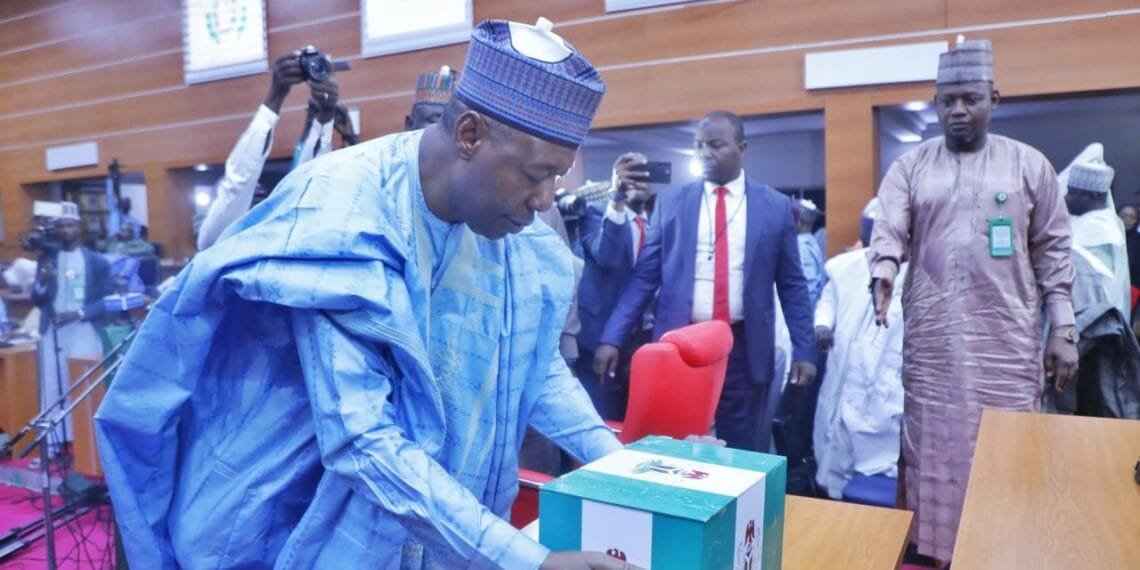In a strategic move to enhance development and fiscal responsibility, Borno State Governor, Babagana Umara Zulum, unveiled a robust budget of N340 billion for the fiscal year 2024.
The budget, themed “Budget of Consolidation and Progress,” places significant emphasis on key sectors crucial to the state’s progress.
Health, Education, and Works emerged as the primary beneficiaries of the budget, with allocations of N51 billion, N39 billion, and N45 billion, respectively.
Zulum expressed his commitment to responsible governance and highlighted the importance of addressing critical needs within these sectors.
A meticulous breakdown reveals that N198,293,223,000 is allocated for capital expenditure, focusing on infrastructure and developmental projects, while N142,326,613,000 is earmarked for recurrent expenditure.
The budget’s financing structure is designed with transparency, drawing from a recurrent revenue of N206,803,053,000, which includes FAAC revenue and Internally Generated Revenue (IGR), along with capital receipts of N128,816,783,000, comprising Aid and Grant as well as capital development funds.
Read also: Gombe Governor unveils ambitious water, sanitation initiative
Sectoral allocations demonstrate the strategic distribution of funds. The Ministry of Finance leads with N53 billion, covering capital and recurrent expenditures, including debt servicing, salary payments, and gratuities.
Other vital sectors also receive allocations as follows: N13 billion for the Ministry of Agriculture, N20 billion for the Ministry of Reconstruction, Rehabilitation, and Resettlement, N9.7 billion for the Ministry of Water Resources, and N9.6 billion for the Ministry of Information and Internal Security.
Commending the Governor’s leadership, the Speaker of the Borno State House of Assembly, Abdulkarim Lawan, affirmed the Assembly’s commitment to promptly pass the appropriation bill.
The Governor declared his determination not to burden his successor with any outstanding debts. He pledged to clear all debts before the conclusion of his second term, ensuring a fiscally sound transition for the state’s next leader.







